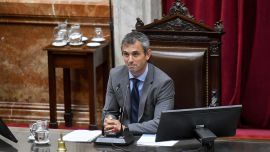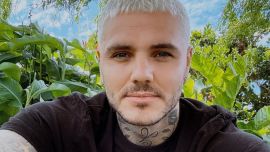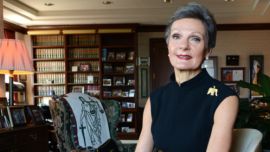Ayelén Mazzina was chosen on Monday by President Alberto Fernández to replace Elizabeth Gómez Alcorta at the helm of Argentina’s Women, Gender & Diversity Ministry.
Through an official communiqué, the head of state praised the 32-year-old feminist who serves as Women, Diversity and Equality secretary for San Luis Province.
“She was in charge of the successful organisation of the 35th Plurinational Meeting of Women, Lesbians, Trans, Transvestites, Bisexuals, Intersexuals and Non Binaries in Huarpe, Comechingón and Ranquel Territory," said the Casa Rosada in a statement, which also highlighted her qualifications as a professor of political science and former San Luis City councillor.
Mazzina, who said in a previous interview with Infobae that "love humanises politics and transforms realities,” is an unknown on the national stage.
On December 12, 2019, she took up the post of women’s affairs secretary for the San Luis provincial government. Soon after, she changed the name of that portfolio to "one that integrates the work for equality and the inclusion of diversities," renaming it the Secretariat for Women, Diversity and Equality.
Gómez Alcorta's replacement defines herself as "cumbiera intelectual" and has commented on the challenges of institutions dealing with “stereotypes, age and gender."
In previous interviews, Mazzina has detailed the difficulties she has dealt with in her personal life, from realising she was a lesbian to coming out to her “very Catholic, conservative” family.
Her work with the San Luis provincial government aims to “assist and accompany people who are suffering gender-based violence” and “to work towards the eradication of all types and modalities of gender-based violence."
Some of the projects in her administration include the Sustainable Menstrual Management Programme and the Generar programme. The latter included the so-called "Pabellón Violeta," which provides work for women and members of the LGBTI+ community who are behind bars.
The secretariat's webpage states that it seeks to "promote the necessary tools to generate the cultural paradigm change that will allow us to live in a more equitable, supportive and free society."
– TIMES/PERFIL





















Comments